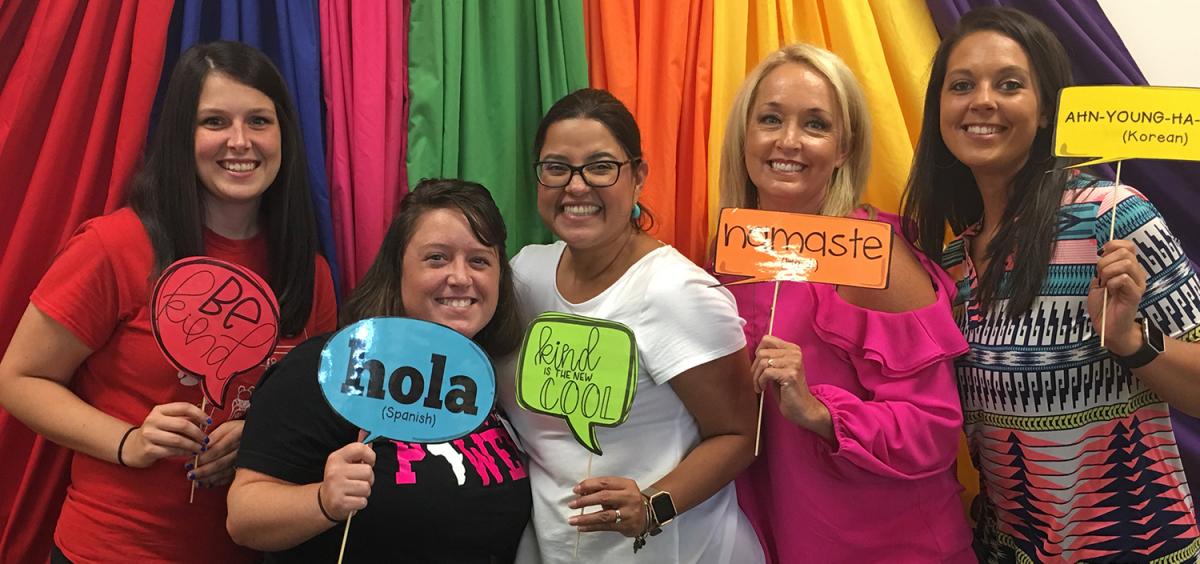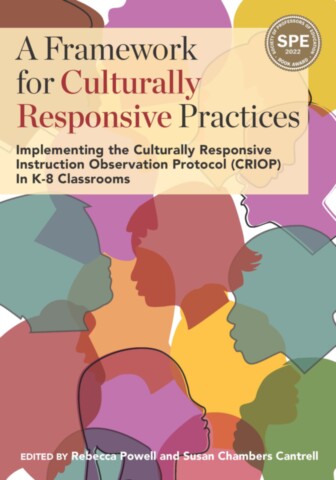The Culturally Responsive Instruction Observation Protocol (CRIOP)
The Culturally Responsive Instruction Observation Protocol (CRIOP), originally developed in the 2010's by a team of researchers in Kentucky, has been used to document and assess teaching practices in research studies across the United States. The CRIOP is grounded in research on culturally responsive instruction and is designed to be a tool for guiding practitioners in their development as culturally responsive educators. The six elements-- Classroom Relationships, Family Collaboration, Assessment Practices, Instructional Practices, Discourse, and Critical Consciousness, offer a useful framework for addressing culturally and linguistically responsive instruction. Research shows that students of teachers who implement many of the CRIOP elements typically outperform students of teachers who do not.
In partnership with the U.S. Department of Education Office of English Language Acquisition, the CRIOP framework is being used to guide studies funded by the National Professional Development Program. Learn more about culturally responsive teacher professional development studies happening now at the University of Kentucky: Project PLACE, Project ExCEL.


The CRIOP Elements
Classroom Relationships: Establishing teacher care and a culturally responsive classroom environment.
Family Collaboration: Promoting open communication between families and the teacher, developing partnerships with parents and caregivers, and valuing “funds of knowledge”.
Assessment Practices: Discovering students’ strengths and literacy competencies, and observing students’ potential for learning.
Instructional Practices: Incorporating students’ cultural knowledge and affirming students’ racial and cultural identities.
Discourse: Providing abundant opportunities for student conversation and explicitly teaching the “language of power.”
Critical Consciousness: Exploring issues important to students and their families, encouraging students to engage in problem-solving of real-world issues, and analyzing biases in texts and aspects of popular culture.
Acknowledgements
We acknowledge the Center for Culturally Relevant Pedagogy at Georgetown College, directed by Dr. Rebecca Powell. The Center was instrumental in developing the Culturally Responsive Instruction Observation Protocol (CRIOP) and its work provides the foundation for Project PLACE.
The CRIOP was developed through the collaborative efforts of Rebecca Powell, Susan Chambers Cantrell, Yolanda Gallardo Carter, Angela Cox, Sherry Wilson Powers, Elizabeth Campbell Rightmyer, Kelly A. Seitz and Tiffany Wheeler. The instrument was revised in 2012 by Rebecca Powell, Susan Cantrell, Pamela Correll, Victor Malo-Juvera, Doreen Ross, and Ruthie Bosch. Many of the photos on this website are from teacher participants in Project PLACE.
